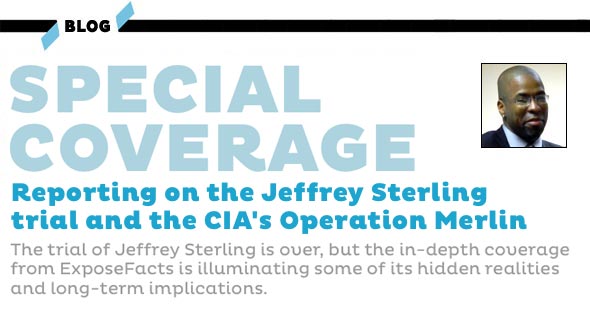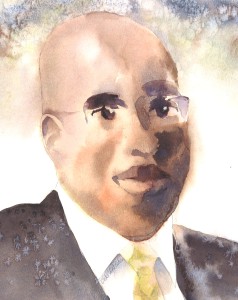The FBI Special Agent who investigated the Merlin leak, Ashley Hunt, testified on Wednesday.
Much of the evidence she entered into the record pertained to the (remarkably limited) phone records between James Risen and Jeffrey Sterling between 2003 and 2007. While there were longer calls when Sterling lived in Missouri in 2004, before Risen went to the CIA with a story he claimed was ready to publish in April 2003, there were just a few minutes of conversation between Risen and Sterling.
One of the last things the government did while Special Agent Hunt was on the stand, however, was enter Stipulation 12, which entered phone records she had identified that took place between Jeffrey Sterling and another journalist. The records dated to around April 2003, but they were all very limited in length and some were even placed to the 800-number for the reporter’s newspaper.
The reporter in question was Ronald Kessler, who was then with the Los Angeles Times.
Kessler was also, at that time, finishing up a book, CIA at War (which would be released in October 2003), that according to the Senate Intelligence Committee Torture Report, was “blessed” by George Tenet and completed with the “assistance” of the CIA.
In seeking to shape press reporting on the CIA’s Detention and Interrogation Program, CIA officers and the CIA’s Office of Public Affair (OPA) provided unattributed background information on the program to journalists for books, articles, and broadcasts, including when the existence of the CIA’s Detention and Interrogation Program was still classified. When the journalists to whom the CIA had provided background information published classified information, the CIA did not, as a matter of policy, submit crime reports. For example, as described in internal emails, the CIA’s [redacted] never opened an investigation related to Ronald Kessler’s book The CIA at War, despite the inclusion of classified information, because “the book contained no first time disclosures,” and because “OPA provided assistance with the book.” Senior Deputy General Counsel John Rizzo wrote that the CIA made the determination because the CIA’s cooperation with Kessler had been “blessed” by theCIA director. [footnotes omitted]
The Senate Torture Report went on to enumerate the inaccurate information Kessler had reported that CIA officials were also spreading. The report also explained that CIA “cooperated” with another Kessler book in 2007.
In other words, over the period of at least 4 years that coincided with the Merlin investigation, Ronald Kessler was considered by the CIA to be one of the most amenable reporters to CIA propaganda, all the way up to George Tenet.
Kessler was, according to the Torture Report, a guy the CIA would reach out to to spread their propaganda.
And that’s the best the government could do as far as implicating Jeffrey Sterling in speaking with reporters other than James Risen.


